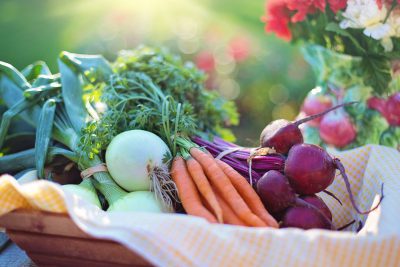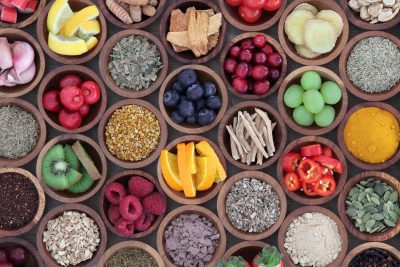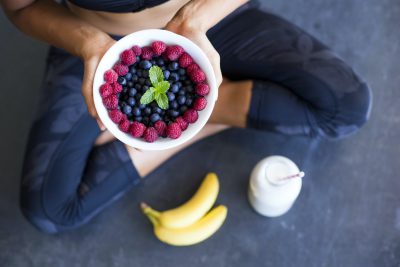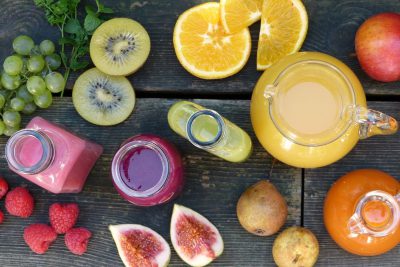There are so many good reasons to try vegan, with improved health – both in the short- and long-term – being one of them. Every nutrient we need can be obtained from a vegan diet, and the payback for making the change could be immense since vegans suffer less from serious illnesses such as heart disease, diabetes and some cancers. Read on to find out what switching to a plant-based diet could do for you.
What Is a Vegan Diet?
A vegan diet is one that contains no animal products at all. It may sound restrictive but there are vegan versions of just about every animal-based product from sausages and steaks to ice cream and cheesecake so there is no deprivation in being vegan!
What is the difference between vegan and vegetarian?
Vegetarians don’t eat meat or fish but will still eat dairy products, eggs and honey. Vegans don’t eat any animal products and may choose plant-based versions of these products instead.
Varieties Of Vegetarians
Aside from vegans (no animal products) and vegetarians (no flesh), there are also lacto-vegetarians (who eat milk but not flesh or eggs), ovo-vegetarians (who eat eggs but not flesh or dairy), pescatarians (who eat fish and so are not really vegetarian at all) and flexitarians (who actively try to eat more plant-based foods but still eat some meat).
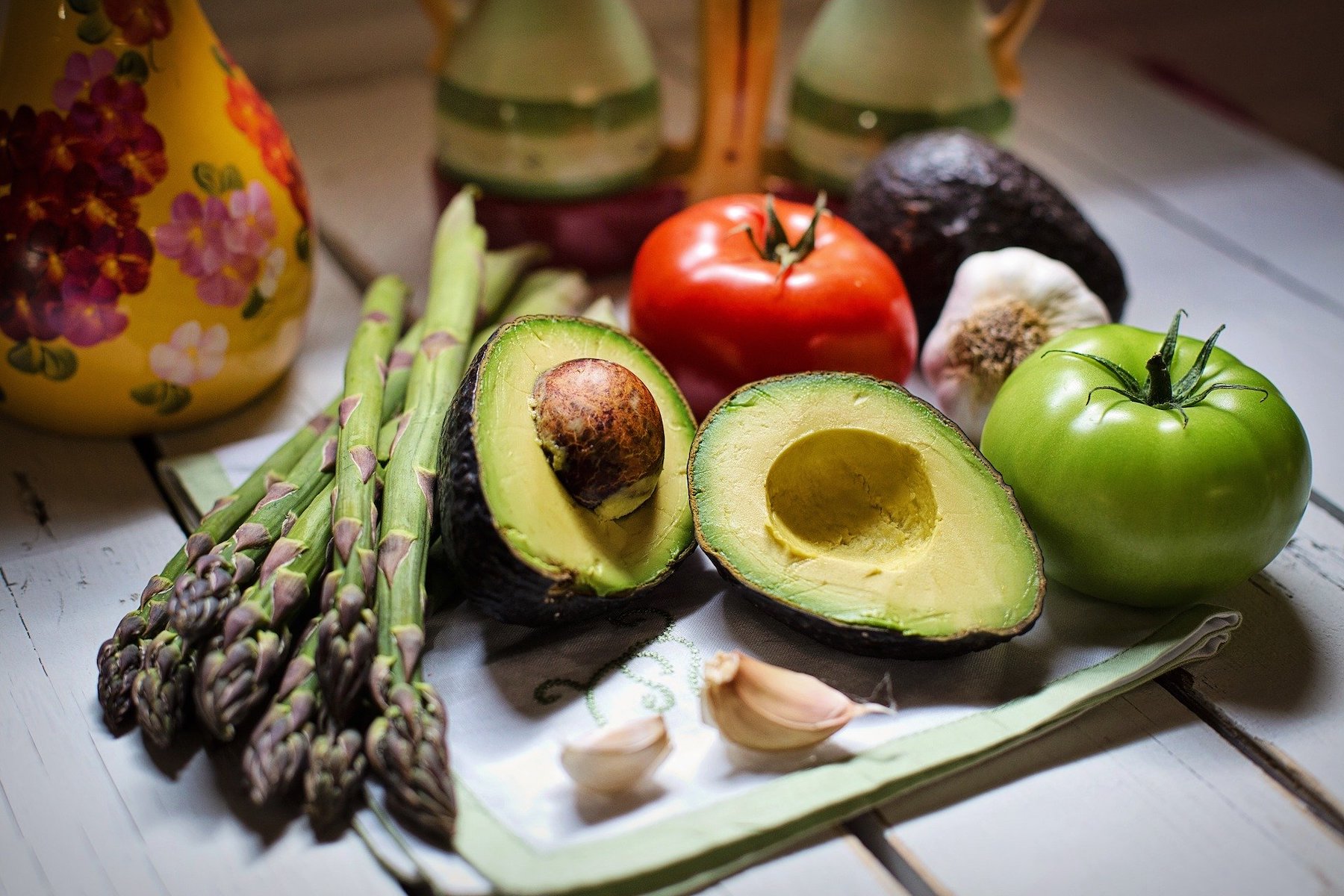
Health Benefits Of A Vegan Diet
There are many ways plant foods can boost your health and wellbeing, and doctors are increasingly encouraging people to switch to a plant-based diet.
Cardiovascular Benefits
No-one has ever been advised to reduce the amount of vegetables they eat and there is a reason for that! Fruits and vegetables are heart-healthy and there is no upper limit – the more you eat, the better. Research shows that five servings a day helps lower the risk of heart disease and stroke slightly but ten servings a day can reduce the risk of cardiovascular disease by 28 per cent, and premature death by 31 per cent. It could be the fiber that helps lower cholesterol and blood pressure, and improve blood vessel function but it could also be that the more plants we eat, the less space there is for animal products – which typically contain large amounts of saturated fats and trans fats. These increase our blood cholesterol, which creates fatty deposits in the blood vessels, raising the risk of heart attacks and strokes.
Cognitive Benefits
Anecdotally, many new vegans report that they feel sharper and experience more mental clarity than before, but the cognitive benefits run much deeper. Drs. Dean and Ayesha Sherzai direct the Alzheimer’s Prevention Program at Loma Linda University. Their groundbreaking book, The Alzheimer’s Solution, is the first to scientifically demonstrate how a plant-based diet can help to prevent and reverse the symptoms of cognitive decline, reducing the risk of Alzheimer’s and other diseases of the brain. They affirm that 90 percent of all Alzheimer’s cases can be prevented and for the 10 percent who have a strong genetic risk, the disease can be delayed for ten to fifteen years. At the heart of their program is a plant-based diet.
Healthier Skin
It’s long been known that dairy in particular is associated with skin conditions like acne, psoriasis and eczema and those who cut out dairy often see their long-term skin complaints clear up almost overnight. Even for those without skin problems, the amount of fresh fruits and vegetables vegans tend to eat means their cells are nourished with all those beautiful natural health-giving antioxidants. It’s common for new vegans to talk about the “vegan glow” – brighter, healthier, clearer skin.
Improve Mood
New vegans often report an improved mood, and even an end to symptoms of depression, but this won’t be the case for everyone. The scientific evidence here is mixed with some research indicating being vegan improves mood, other studies saying it doesn’t. Where depression and veganism are linked, there is no sense that one causes the other, but that perhaps the very issues that may cause us mental hardship (climate change, animal cruelty, ill health) could drive us to become vegan. For those feeling low, adopting a plant-based diet could help. Check out this podcast on the Physicians Committee for Responsible Medicine website to hear the impact it had on one woman’s life, as well as the science behind food and mood.
Lower Risk Of Type 2 Diabetes
Type 2 diabetes is so common that we can forget just how serious this condition can be. It can lead to heart disease, kidney failure, blindness, and limb amputations but none of this is inevitable as type 2 diabetes is also almost entirely avoidable. Research shows that higher intakes of red meat and poultry are associated with a significantly increased risk of developing diabetes. Conversely, a plant-based diet can not only prevent and manage it, it can even reverse type 2 diabetes. One 2003 study, funded by the NIH, found that a plant-based diet controlled blood sugar three times more effectively than the traditional diabetes diet and participants saw dramatic improvements within weeks. Since then, the evidence for adopting a vegan diet to combat and reverse diabetes just keeps coming.
Metabolism Benefits
Scientists are beginning to understand just how big a role gut health plays in our long-term health, and being vegan appears to have a positive impact on the gut biome. Studies have found that adopting a vegan diet can improve energy metabolism in both healthy and type 2 diabetic individuals over the short and moderate-term. It is thought this could be connected with the gut biome, too but as yet no one knows. However, we do know that our gut biome impacts the health of our brain, kidneys, heart, skin, and immune systems and seems to play a part in cancer and rheumatoid arthritis, too, and that feeding our guts with a diet rich in fruits, legumes, vegetables and whole grains provides the fiber that supports the good bacteria. Animal products, by contrast, are inflammatory, feed the bad bacteria, and can raise the risk of many serious diseases, including heart disease, type 2 diabetes and some cancers.
Reduce Risk of Cancer
Plants are full of fantastic, health-giving nutrients and there is strong evidence that they are protective when it comes to certain cancers. But it’s not just that vegetables are the good guys; it’s also that meat is a problem. The World Health Organization says there is sufficient evidence to affirm that processed meat causes cancer and that all red meat should be categorised as “probably carcinogenic”. Even a moderate intake of red meat raises the cancer risk. On the flipside, research has found that those who eat diets of mostly plant-based foods have “a marked reduction in mortality and age-adjusted incidence of many cancers common in Western society. These cancers include breast, prostate, colon, pancreas, ovary, and uterine endometrium cancers.”
What About The Health Risks Of Being Vegetarian?
Surely, being vegan cannot cure everything? Even vegans must get sick sometimes! Of course, that’s true, but when we eat a balanced plant-based diet we significantly reduce the risks of many serious, chronic and debilitating conditions, and getting the nutrition right is at the heart of good health.
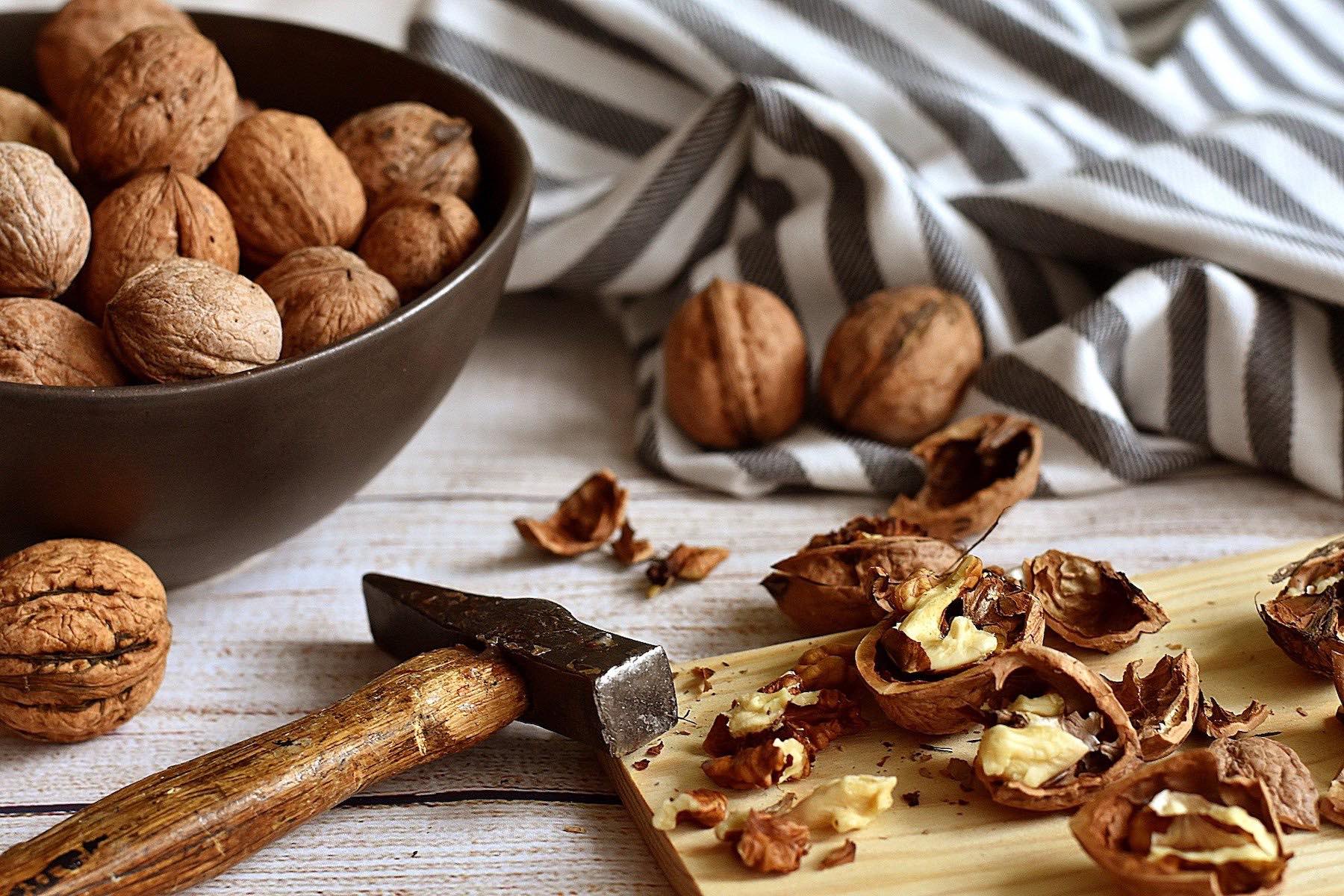
Nutrients To Consider On A Vegan Diet
It’s perfectly possible to get every nutrient you need on a vegan diet but it is wise to pay closer to attention to certain elements to ensure you stay fighting fit.
Calcium
Milk is not the only source of calcium though for many people, it is the main one. Vegans can get a good amount from plant milks and yogurts so long as they are fortified (which many are) and from tofu that has been set using calcium. Veggie lovers can add even more through eating leafy green vegetables such as kale, collards, bok choi, broccoli and watercress, and there is still more in beans, dried apricots, sesame seeds, tahini, almonds, Brazil nuts, dried figs and oranges. To help us absorb calcium, we also need a good supply of vitamin D.
Iodine
Non-vegans usually get iodine through the milk they drink being contaminated with the iodine-based disinfectant used to clean cows’ teats and milking machinery. Thankfully, there are other ways! Iodine is found in small amounts in vegetables but there is no way of knowing how much they contain as it depends on the soil they grew in. Seaweed is a good option but again levels can vary widely, depending on the waters the seaweed come from. Eating brown seaweed once a week should be sufficient but using iodised salt is also a good option for those who do not have high blood pressure (and being vegan tends to keep it low). If these options don’t suit you, a supplement is recommended.
Iron
Although iron-deficiency anaemia is not uncommon, research shows that those who eat a balanced plant-based diet are no more at risk than those who eat meat. Good plant sources include lentils, garbanzo beans, beans, tofu, cashew nuts, chia seeds, ground linseed, hemp seeds, pumpkin seeds, kale, dried apricots and figs, raisins, quinoa and fortified breakfast cereal. Other foods to help boost your iron intake are: edamame beans, tempeh, blackstrap molasses, watercress, and dark chocolate. Be sure to eat plenty of vitamin C to help you absorb iron, and avoid drinking coffee or tea with your meal.
Omega-3 Fatty Acids
We need fats to help our cells function and our bodies can make almost all that we need. Just two must be included in our diets and for this reason they are known as Essential Fatty Acids. Omega-6 can be found plentifully in leafy vegetables, seeds, nuts, grains and most vegetable oils so it is easy to find. Omega-3 is also easy but since omega-6 competes with it we must make sure we get sufficient omega-3. The best sources are leafy green vegetables (Brussels sprouts, kale, spinach), walnuts, rapeseed oil, ground flaxseed and flaxseed oil, soya beans and tofu.
Vitamin B12
Recognising the importance of getting sufficient B12, the Vegan Society recommends that vegans:
- Eat fortified foods two or three times a day to get at least three micrograms (mcg or µg) of B12 a day. Foods that are commonly fortified with B12 include yeast extract, nutritional yeast, some breakfast cereals and plant milks.
- OR Take one B12 supplement daily providing at least 10 micrograms
- OR Take a weekly B12 supplement providing at least 2000 micrograms.
Taking a supplement is no big deal. More than three-quarters of Americans have taken supplements in the last 12 months.
Vitamin D
Vitamin D is known as the sunshine vitamin for a reason and those who spend time outdoors on sunny days should be able to manufacture all they need. But for those who live in northern latitudes, getting sufficient vitamin D all year round can be a problem and they must look to diet to make up the shortfall. Mushrooms are a great source, and many breakfast cereals, breads and vegan butters are already fortified with it. But if getting sufficient vitamin D is difficult, everyone, no matter their diet, is advised to take a supplement just to be on the safe side.
Zinc
We need zinc for lots of reasons including to help us fight infections. Thankfully, it’s not hard to get as a vegan. Sources of zinc include beans, garbanzo beans, lentils, tofu, walnuts, cashew nuts, chia seeds, ground linseed, hemp seeds, pumpkin seeds, wholemeal bread and quinoa.
Protein
We saved this to last because you really should push this one to the back of your mind! It is super-easy to get sufficient protein on a vegan diet since almost every food contains it. Some of the best sources include tofu, tempeh, some vegan sausages and burgers; soy mince, lentils, garbanzo beans, black beans, and edamame, seeds, nuts and nut butters, quinoa, oats, rice and grains. Even vegetables contain protein! Eat a well-balanced vegan diet and you can’t go far wrong.
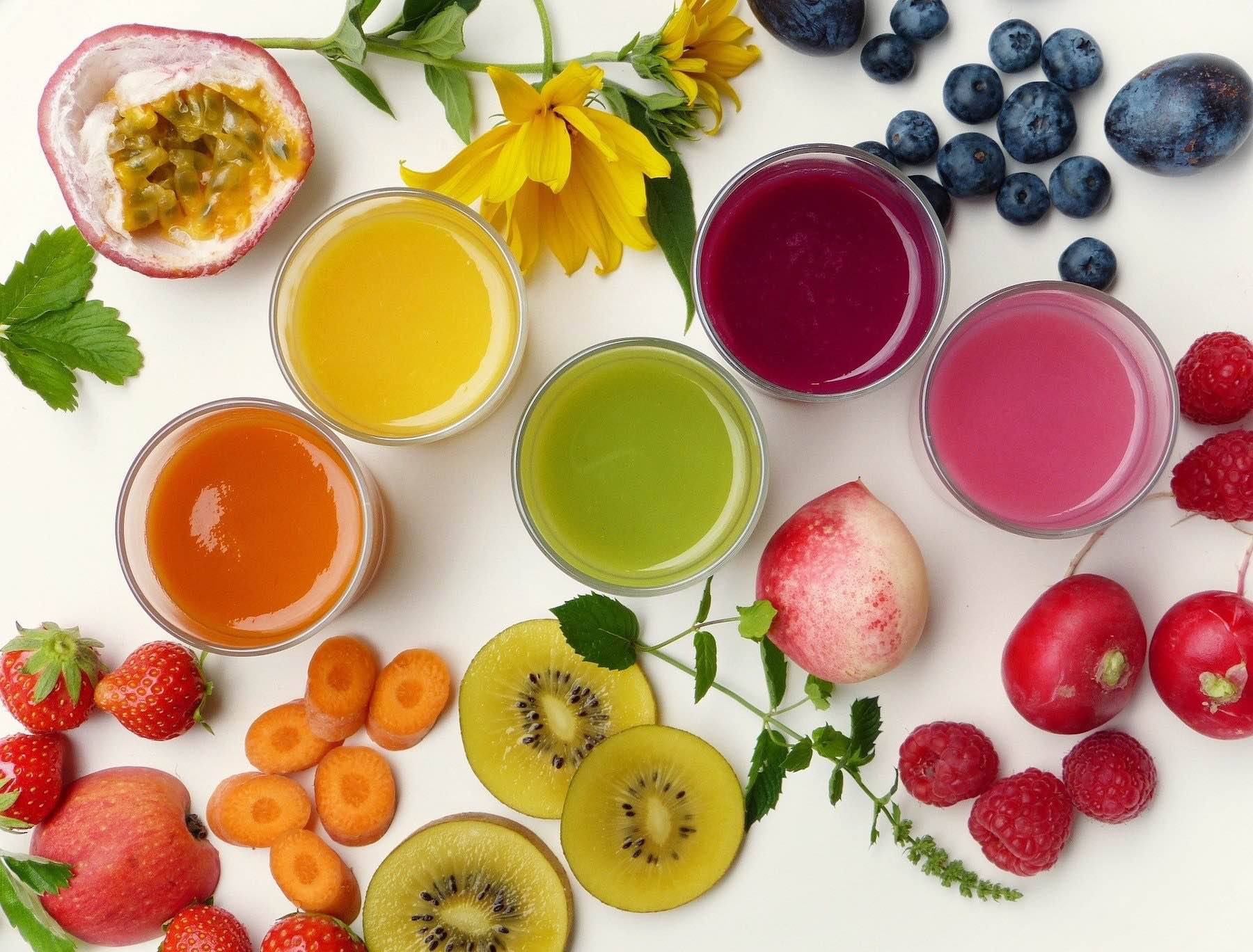
Conclusion
There are so many potential health benefits to becoming vegan and researchers are uncovering more evidence every day. But if you listen to real people who have switched to eating plant-based you’ll hear some extraordinary stories. Check out these powerful testimonials by people whose lives were changed – and perhaps even saved – by switching to a plant-based diet.
What might trying vegan do for you?
Let us help you try vegan for 31 days. Sign up here to get the resources you need to take control of your health.
